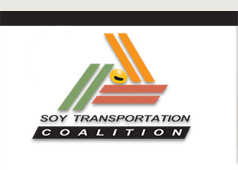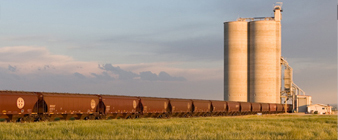 |
 |
|
| eNews • July 2016 | ||
| Promoting a Cost-Effective, Reliable and Competitive Transportation System |
||
 US exporters sail through first day of new SOLAS rule
US exporters sail through first day of new SOLAS rule
U.S. exporters’ first day under the new requirements for providing container weights was reminiscent of the feared Y2K computer crash that didn’t happen. Terminals, shippers, ports and truckers reported smooth operations on July 1.
It was a light day for many marine terminals, which handled heavy volume the previous day in advance of the July 4 holiday weekend. Officials also credited industry organizations’ communication about the new rules, and regulatory approval of a common approach by major container lines and six ports.
â€Е"We haven’t turned any trucks away. We haven’t had any boxes miss the ship,” said Jeff Davis, chief port operations officer at the Port of Houston. â€Е"So far the new rule has no impact on cargo operations, and it hasn’t slowed our gates.”
Other ports along the East, West and Gulf coasts also reported a trouble-free start to implementation of new rules requiring ocean carriers to be provided with a container’s verified gross mass before the box is accepted for loading.
The rule was adopted by the International Maritime Organization’s as an amendment to the Safety of Life At Sea convention and is aimed at preventing accidents at sea and in port caused by overloaded containers.
Jim Newsome, chief executive officer at the South Carolina Ports Authority, said the SOLAS rules implementation went smoothly at the Port of Charleston because the port opted to keep doing what it had already done – weigh all incoming containers and provide the data to carriers.
â€Е"All working as normal,” he said. â€Е"We are doing the same process.”
Newsome created a stir in March at JOC’s TPM conference in Long Beach, California, when he suggested that Charleston’s practice offered a simple way to meet the SOLAS rule. After protracted and sometimes bitter debate, several other ports also opted to use container weight scales to meet federal rules to fulfill the VGM requirement.
â€Е"This whole thing was blown out of proportion, in my opinion,” said Randy Guillot, president of Triple G Express and Southeastern Motor Freight in New Orleans. â€Е"Whether you call it VGM or something else, the shippers have been providing that information since Day 1. They made this a lot more complicated than it needed to be. But we’ve had no issues at the port and no delays for any of our trucks, period.”
Terminal officials said they received a flurry of questions about the new rules this week, but that most customers seemed to understand the new requirements by implementation day.
For terminals, key issues surrounding the new rules included legal liability, the need to tweak computer systems to serve as a conduit for providing VGM, the absence of certified weight scales at some terminals and what to do with containers that miss a sailing because no VGM has been provided.
Several terminals said they would provide weighing services for a fee and would charge additional handling fees for boxes that require extra handling or storage.
Terminal operators in Los Angeles, Long Beach and Oakland agreed to continue weighing every truck-export container unit, as they have for years, to satisfy the 29 CFR safety requirements under U.S. Occupational Safety and Health Administration guidelines. The terminals subtract the truck weight and provide ocean carriers with the VGM for use in stowage planning.
The ocean carriers decide whether to use the shipper-provided VGM or the terminals’ weights – a decision influenced by the carrier’s relationship with the shipper. The ocean carriers then tell the terminal operators whether to load the container onto the ship.
â€Е"Nobody, is planning on turning away a container without a VGM,” said John Cushing, president of PierPass Inc., who also represents terminal operator associations at the California ports.
The Northwest Seaport Alliance of Seattle and Tacoma published on its website the process listed by the container terminals in the port complex. Six of the seven terminals will accept and weigh containers at the gate. The Pierce County Terminal in Tacoma will accept all containers but will follow a policy of â€Е"No VGM, no load until determination by carrier.”
Houston was one of six operating ports that joined the Ocean Carrier Equipment Management Association in seeking Federal Maritime Commission approval to forge a common policy on SOLAS implementation. The Texas port got a head start on implementation of the new rules by activating software last week to permit collection of shipper-generated VGMs from carriers.
â€Е"We’ve been collecting the VGMs all week,” Davis told JOC.com. Houston accepts export deliveries up to seven days before the vessel cutoff.
In addition to accepting VGMs electronically, Houston terminals are weighing containers as they arrive. If the box arrives without a VGM,or if there’s more than a 5 percent difference in the scale weight and the VGM that was provided, the port’s scale weight is provided as the VGM. If the weights are within 5 percent, the shipper’s weight is given to the carrier.
At the Port of New York and New Jersey, where all six container terminals are offering weighing services for a fee, port authority spokesman Steve Coleman reported â€Е"no issues and no problems at the port today re SOLAS.”
Likewise, Jeff Bader, president of the Association of Bi-State Motor Carriers, which represents drayage truckers, said he had heard of no issues. â€Е"All is well,” said Bader.
Tom Adamski, agent for First Coast Logistics at the New York-New Jersey port, said light traffic Friday made the first day of implementation easier. â€Е"I am getting inquiries from shippers,” he said. â€Е"They are not running into problems at all.”
If any problems do crop up, they’re likely to be next week if terminals accumulate backlogs of containers without VGMs, and boxes are rolled to later voyages. But for now, ports and industry officials contacted by JOC.com see few if any problems.
â€Е"The cargo appears to be moving,” said Bryn Heimbeck, founder and CEO of Trade Tech, which created a mobile software program to help shippers file SOLAS data.  â€Е"The phones are not ringing off the hook, with people panicked about transmissions that they have made and rejections at the terminals. That we are not seeing. But it’s only 24 hours, so it’s very hard to say.”
Source: Journal of Commerce
Soy Transportation Coalition |
|
